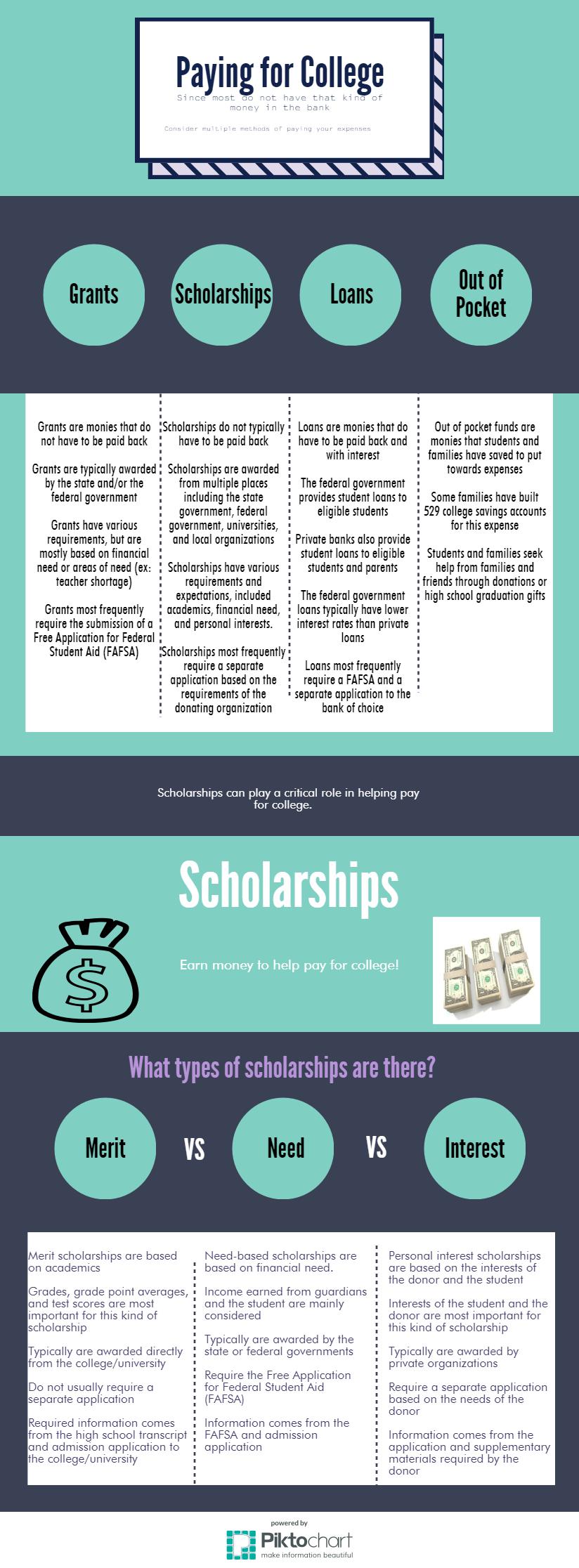Welcome to the Western Boone Counseling Department
We are happy to help!
Mrs. Holli Butler

765-482-6143 x 3157
Mrs. Jamie Hartman

Grades 9-12; A-L
765-482-6143 x 3158
Ms. Terra Query

Grades 9-12; M-Z
765-482-6143 x 3161
Mr. Justin Pelley

Counselor Grades 7 & 8
765-482-6143 x 3159
Mrs. Tori Cheney
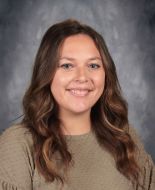
765-482-6143 x 3160
Graduation Requirements
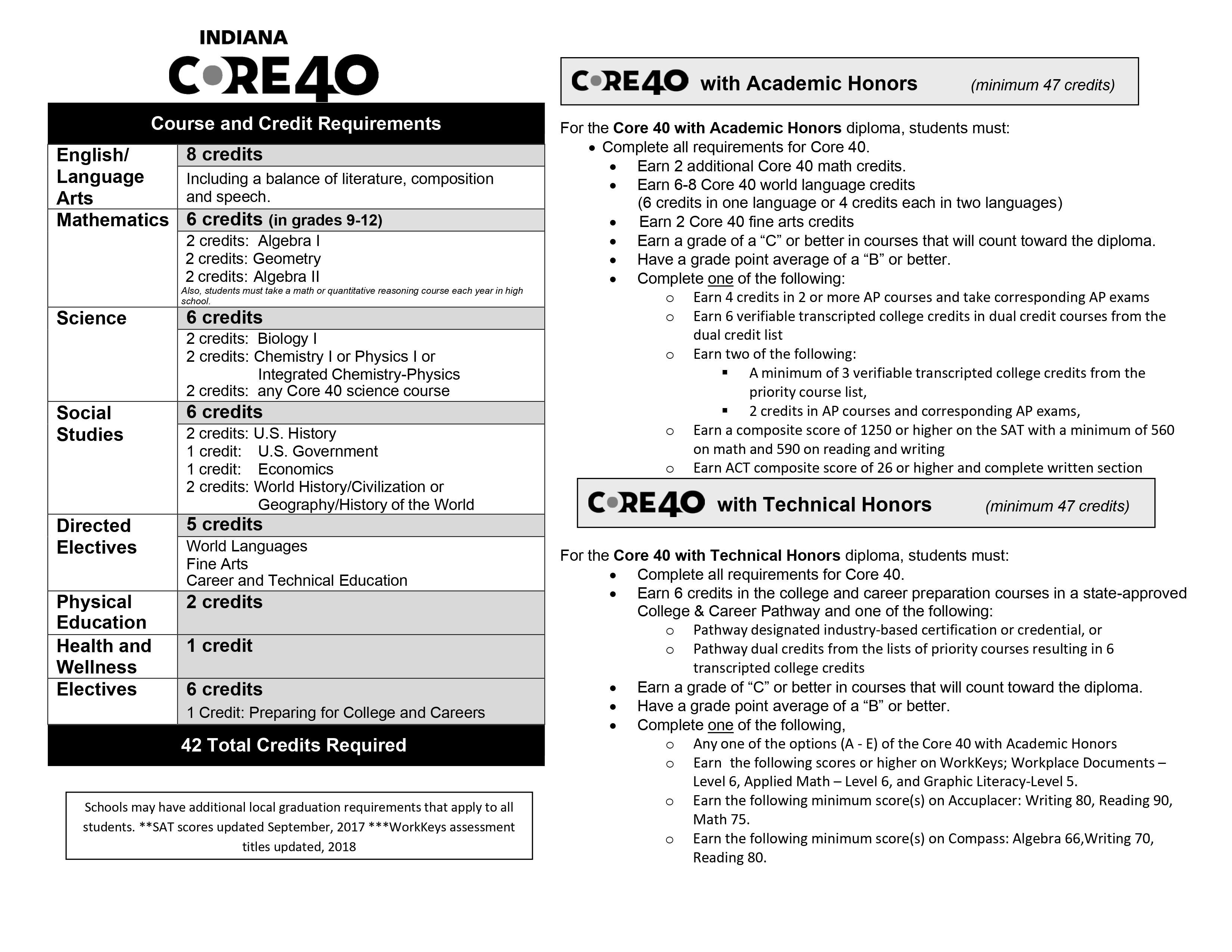
Scheduling
Western Boone begins its official scheduling process in January of each school year. Parents and students can review grade-level focused information in mid-January each year to learn about graduation requirements, course availability, and college/career planning. Counselors will begin meeting with students and parents on an individual basis in mid-January through March. Please feel free to review the forms and information below for more information. Schedule requests may be reviewed and changed in April. After April of each year, there are NO schedule changes approved. Any questions can be directed to the assigned counselor listed above.
Scheduling Forms
Graduation Requirements Chart
Curriculum Guide School Year 2025-26Curriculum Guide School Year 2025-26
What is the Indiana College Core?
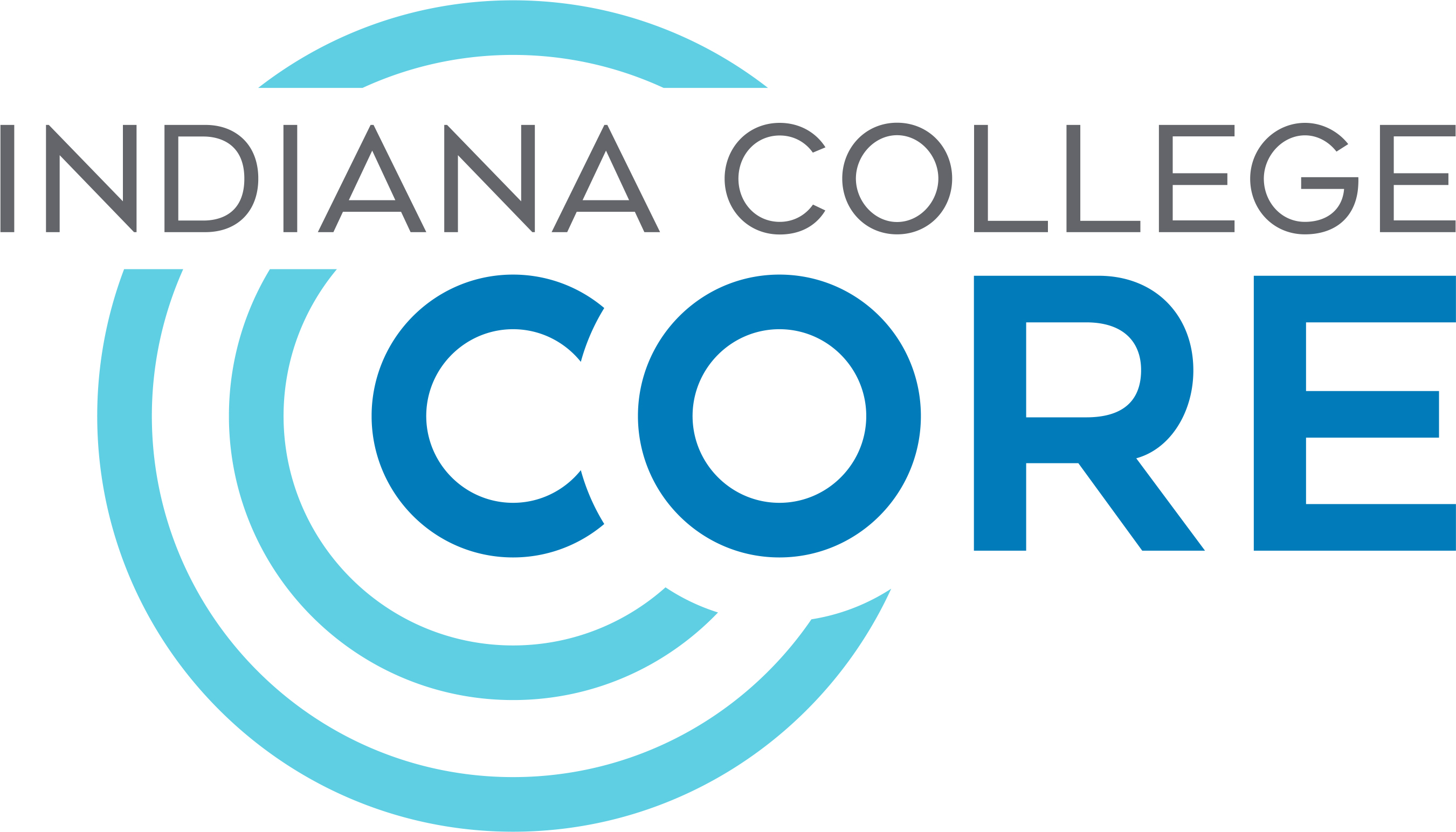
Indiana College Core
Do you want to get a head start on college? The Indiana College Core (ICC) allows high school students to earn 30 general education credits that can be transferred as a block to any public college or university in Indiana, as well as some private institutions. In other words, students who earn the College Core in high school may already be finished with their first year of college at a fraction of the cost. To learn more about the Indiana College Core and put together your plan, use My College Core (mycollegecore.org) and work closely with your school counselor.
Current 6th Grade
https://youtu.be/MdWHRtA_CX0
Current 7th Grade https://www.youtube.com/watch?v=WjKhoc08ltA
Current 8-11th Grade
https://drive.google.com/file/d/1PsvmjnxkyCtq1WRlNN4iI8oLu3x-5Tjq/view
Testing
Western Boone provides testing opportunities for various state-required assessments and personal development. If there are any questions about testing offered at Western Boone, please contact the student's counselor.
| PSAT | The PSAT assessment is a practice version of the SAT college admission test. It covers reading, mathematics, and writing content areas. The test is given to all grade 10 and 11 students for free. Grade 11 students typically choose to take the assessment to qualify for the National Merit Scholarship or as additional practice before taking the SAT. You must have the Adobe Flash Player installed to view this player.
|
| Work Keys | Work Keys is a job-skills assessment that covers reading, mathematics, and locating information (graphs, charts, etc.) This assessment is given to seniors who have not met all the requirements for the Technical Honors Diploma, but still wish to earn this diploma. |
| Advanced Placement (AP) | AP courses provide college-level content to students while in high school. Each course has a corresponding exam given in May that assesses the content covered in the course. Students who score a 3, 4, or 5 (out of 5) are eligible to receive college credit from public Indiana colleges. |
| SAT | SAT is an assessment produced by The College Board that is used for college admission purposes. It is given to all Western Boone juniors in the spring as a required exam by the State of Indiana. |
| Accuplacer | The Accuplacer assessment is a college placement exam produced by The College Board organization. The test is used at Western Boone for dual credit placement purposes. |
| Knowledge Assessment | Knowledge Assessment is a college placement exam used by Ivy Tech. This test is used at Western Boone for dual credit placement purposes. |
Many students and families are not sure how to apply for education after high school. We hope the information below will help understand this process.
When do I apply to college?
Most college applications are available beginning August 1st of the student's senior year. Some applications don't become available until September 1st. Regardless of application availability date, we encourage all students to apply to schools of their choice before fall break. A number of schools have priority application deadlines of November 1st. It is important to note that when a college posts a deadline, they must have all required application materials received by that deadline.
What do I need to apply to college?
Typically, college applications require:
Application (found on the college's website)
High School Transcript (order on www.parchment.com)
Senior Year Schedule
College Admission Testing Scores
Personal Essay
Recommendation Letters
Will I get in to the college of my choice?
The best way to find out if a particular college is a good match is to speak with your student's school counselor. Most colleges will post information about their admission requirements on their website. This will usually include median grade point averages and test scores of their admitted students. In the state of Indiana, the most challenging school to be admitted is to Notre Dame. Indiana University Bloomington and Purdue University are also significantly challenging and getting harder each year. Students should apply to multiple schools that have the program of their choice and also have admission requirements that the student can meet.
When will I find out if I get in to college?
Most colleges are on what is called "rolling admission". This means that colleges review applications as soon as they receive all of the required materials. Therefore, the earlier you apply, the faster you will hear back from them with an admission decision. The turnaround time is close to 4-8 weeks. Purdue University is the exception. Students will not find out if they are admitted until ~January 15th each year (if they apply by November 1st).
Indiana’s 21st Century Scholars is a needs- and performance-based program that provides students the opportunity to earn up to a four-year scholarship at an Indiana college or university. Hoosier students who meet income criteria by being enrolled in free/reduced lunch during their 7th- or 8th-grade year of middle school will be automatically signed up for the 21st Century Scholars program. Students whose families meet the income guidelines, but are not enrolled in free/reduced lunch may still apply through their ScholarTrack account. Students commit to maintaining academic success, remaining drug and alcohol free, and completing college-preparation activities. Please contact your student's school counselor with any questions.
For Program Details and to Apply Online, Click HERE
Financial Aid
Financial aid is money to help pay for education costs after high school. There are many types of financial aid including scholarships, grants, work study awards, and loans. Financial aid comes from multiple resources including the federal government, state government, colleges, and non profit and for profit agencies. For more information about financial aid and how to apply for it, please visit the federal student aid website.
What is FAFSA?
The Free Application For Federal Student Aid (FAFSA) is the most important document for determining if you’re eligible for financial aid — money to help you pay for education and training beyond high school. The easiest way to file the FAFSA is online at studentaid.gov.
After you file your FAFSA, your college will be able to tell you which scholarships and grants you could receive as well as how much money you can borrow in federal loans. To find out more about the FAFSA, including what kinds of state financial aid is available, check out Learn More Indiana’s FAFSA guide for Hoosiers. Beginning with the class of 2024, submitting a FAFSA is required by state law SEA 167.
Get connected with specialists who can answer your detailed questions. InvestED is a free service that helps families understand the details planning for education beyond high school. Find them online at https://www.InvestEdIndiana.org, email them at , or call 317-715-9007 for free assistance.
Scholarships
We understand that scholarships can play a vital role in helping pay for postsecondary education. We encourage students and parents to review the scholarships listed in the newsletter below to find most local scholarships and some state and national level scholarships. We strongly encourage students and parents to continue their scholarship search by utilizing search engines like FastWeb and visiting websites of individual universities and companies to take advantage of their scholarship offerings. Any scholarships that have applications available for download are listed under the applications section. If you have any questions, please do not hesitate to contact counselor, Terra Query.
| Fastweb |
| Scholarships.com |
| Raise Me |
| Cappex |
| College Board Scholarship Search |
| U.S. Dept. of Labor Scholarship Search |
| Scholarship America |
Scholarship Newsletter
Many students and families are not sure what actions they should be taking to best plan for high school success and college admission. If there are any questions about what should be happening at your student's grade level, please review the timelines given below. Also, please feel free to contact your student's school counselor at any time with any questions.
Knowing what you want to do for a career can be a very scary thought. Students tell us frequently that they don't know what they want to do with their life, where they want to go to college, or what they want to or should study after high school. Below are a few resources that might help. Learn More Indiana has a free assessment that partners with Work One called Indiana Career Explorer. This assessment covers not only career interest, but career values and skills, which are two additional and equally important pieces to career development.
Mental Health Resources
Students and families who want assistance outside of what the school provides are welcome to contact one of the providers below.
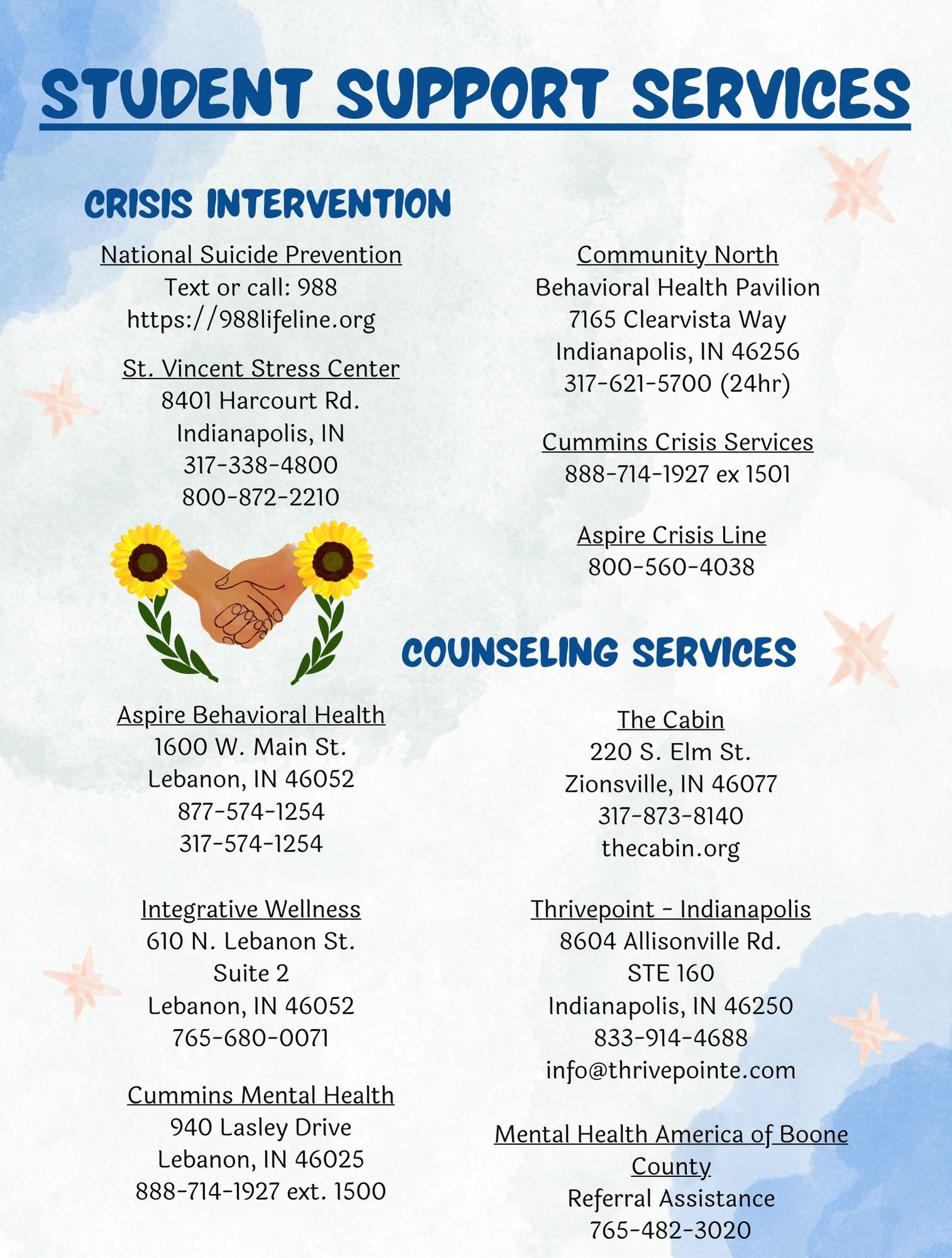
Why do grades matter?
Not many students ask us this question, but they do think it and it affects their performance. Grades matter because all high school grades will appear on a student's permanent record. This permanent record is called a transcript. A transcript is the actual proof of a student's graduation as well. When college ask us for information about a student when deciding if they want to admit them, we send a transcript. When an employer contacts us to ask for verification of education, we send them a transcript. When an insurance company asks us to send verification of a student who wants a discount on their policy, we send them a transcript.
Basically, everything a student does in high school will affect this transcript and could affect the student's future!
It is important to make sure the transcript is the best possible reflection of the student. People that ask to review a transcript do not know students personally and make judgments about the students based, many times, solely on this one document.
What can I do to get the best transcript?
Having the best performance possible starts out by selecting the best courses that fits the student's needs and abilities. A student who struggles in math should not take upper level or honors mathematics. If the student did take those courses, the student likely would not earn the best grade and would be a poor reflector of the student as a whole.
The questions to always ask when selecting courses are:
1. Am I meeting graduation requirements?
2. Do the courses challenge me, but are not too difficult for my abilities?
3. Do the courses help prepare me for my future career goals?
If the student can answer yes to those three questions, then taking those courses are likely a great idea and will prepare the best transcript possible.
How are grades calculated?
Please review the following
document
for more information about grades and how they affect a transcript.
What does a school counselor do?
In a broad sense, school counselors provide academic, college, career, and personal guidance to students. Let's break each area down...
Academic Guidance
This area of our responsibility includes advice on how to perform better in high school. It includes scheduling classes that will meet students needs and abilities and aligning those things with high school graduation. We check grades frequently and meet with students who are not meeting their potential to discuss methods of improvement. We make referrals to potential tutoring resources for extra help. Time management is typically a factor in poor performance. It is not unusual for us to help students make daily/weekly calendars so students can plan their time best. School counselors meet with each new student who wishes to enroll at Western Boone in order to plan a schedule and get acclimated to the school.
College Guidance
This area of our responsibility includes scheduling in regards to future planning, i.e., making sure college admission requirements are being met. We also check grades frequently with college guidance in mind so students have the best academic record possible to present to college admission officers. School counselors are responsible for providing guidance about college admission testing such as the SAT and ACT and their practice tests like the PSAT.
Career Guidance
Career guidance involves helping students plan for the career that suits their interests, values and skills the best. We encourage students to complete various assessments that test a students best fit for specific careers. We also guide students into certain courses that will help prepare students most for their career choice.
Personal Guidance
School counselors also are heavily trained on how to help students cope with personal challenges. Students will typically struggle with how best to handle challenges with friends, significant others, and family members and seek our advice on next steps. We are available to make recommendations on places to seek resources in the community as well.

